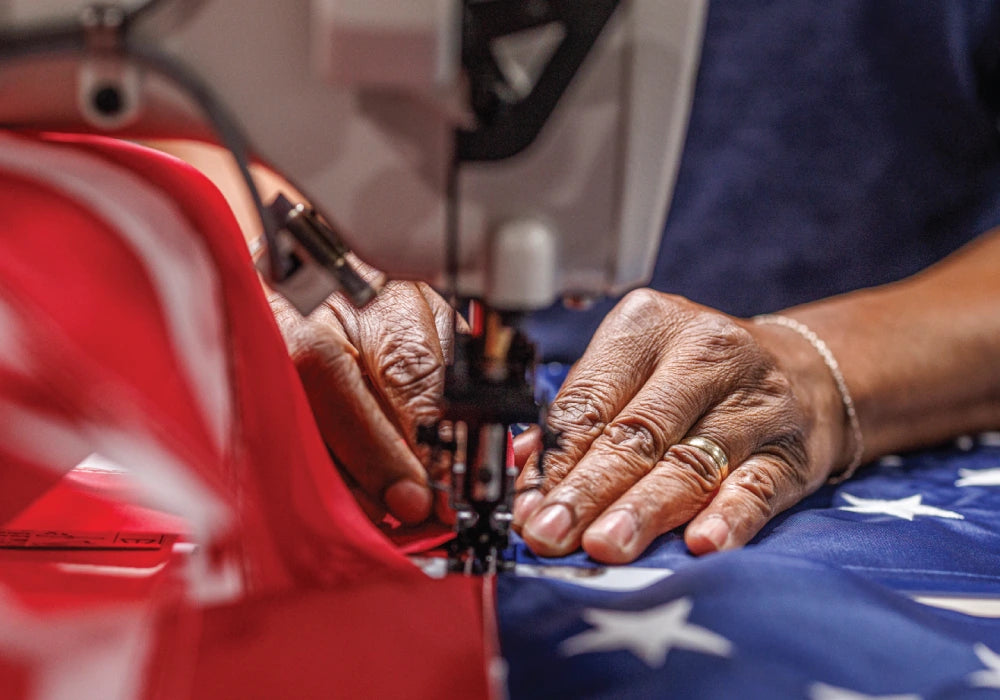February 5


1631
Roger Williams, the founder of Rhode Island and an important American religious leader, arrived in Boston in the Massachusetts Bay Colony from England. A Puritan, he was eventually banished from the Massachusetts Bay Colony by the General Court. With the assistance of the Narragansett tribe, he established a settlement at the junction of two rivers near Narragansett Bay, located in present-day Rhode Island. He declared the settlement open to all those seeking freedom of conscience and the removal of the church from civil matters, and many dissatisfied Puritans came. Taking the success of the venture as a sign from God, Williams named the community “Providence.”

1883
The Southern Pacific Railroad completed its transcontinental “Sunset Route” from New Orleans to California, consolidating its dominance over rail traffic to the Pacific. Termed “the Octopus” for its tentacled stranglehold on much of the California economy, the Southern Pacific inspired Californians to create some of the first strong public regulations over railroads in American history. But despite the anger and outrage Huntington’s exploitation inspired, few would deny that the mighty Southern Pacific Railroad played an essential role in fostering the growth of a vibrant California economy for decades to come.


1919
Hollywood heavyweights Charlie Chaplin, Mary Pickford, Douglas Fairbanks and D.W. Griffith joined forces to create their own film studio, which they called the United Artists Corporation. United Artists quickly gained prestige in Hollywood, thanks to the success of the films of its stars, notably Chaplin’s The Gold Rush (1925), as well as the work of actors such as Buster Keaton, Rudolph Valentino and Gloria Swanson.
February 6


1937
John Steinbeck’s novella Of Mice and Men, the story of the bond between two migrant workers, was published. He adapted the book into a three-act play that was produced the same year. The story brought national attention to Steinbeck’s work, which offered social commentaries on injustices of various types. Steinbeck would go on to win the Pulitzer Prize for The Grapes of Wrath in 1939 and the Nobel Prize in 1962.

1985
In his State of the Union address, President Ronald Reagan defined some of the key concepts of his foreign policy, establishing what comes to be known as the “Reagan Doctrine.” The doctrine proclaimed overt American support for anti-Communist revolution on the grounds of justice, necessity and democratic tradition. The doctrine was part of Reagan's overarching strategy to pressure the Soviets on key Cold War battlefields. In action, this policy translated into covertly supporting the Contras in their attacks on the leftist Sandinista government in Nicaragua; the Afghan rebels in their fight against the Soviet occupiers; and anticommunist Angolan forces embroiled in that nation’s civil war.

1993
Tennis champion Arthur Ashe, the only African American man to win Wimbledon and the U.S. and Australian Opens, died at the age of 49 of complications from AIDS. It was believed he contracted the HIV virus from a tainted blood transfusion following a 1983 heart operation. Ashe’s body later laid in state at the governor’s mansion in Richmond, Virginia, where thousands of people lined up to pay their respects to the ground-breaking athlete and social activist.
In 1997, the U.S. Tennis Association announced it would name the new center court stadium at the USTA National Tennis Center in Flushing Meadows, New York, the Arthur Ashe Stadium.
February 7

1962
President John F. Kennedy issued an executive order broadening the United States' restrictions on trade with Cuba as a result of a rapid decline in U.S.-Cuban relations. The ensuing embargo, which effectively restricts all trade between Cuba and the United States, has had profoundly negative effects on the island nation's economy and shaped the recent history of the Western Hemisphere. Though the U.S. economy is actually estimated to lose substantially more per year—nearly $5 billion—due to the embargo, the much smaller economy of Cuba is estimated to lose roughly $685 million per year. Losses from potential American tourists, who flock to virtually every other island in the Caribbean, account for much of that.

1964
Pan Am Yankee Clipper flight 101 from London Heathrow landed at New York’s Kennedy Airport—and “Beatlemania” arrived. It was the first visit to the United States by the Beatles, a British rock-and-roll quartet that had just scored its first No. 1 U.S. hit six days before with “I Want to Hold Your Hand.” At Kennedy, the “Fab Four”—dressed in mod suits and sporting their trademark pudding bowl haircuts—were greeted by 3,000 screaming fans who caused a near riot when the boys stepped off their plane and onto American soil.


1984
While in orbit 170 miles above Earth, Navy Captain Bruce McCandless II became the first human being to perform an untethered space walk, when he exited the U.S. space shuttle Challenger and maneuvered freely, using a bulky white rocket pack of his own design. McCandless orbited Earth in tangent with the shuttle at speeds greater than 17,500 miles per hour—the speed at which satellites normally orbit Earth—and flew up to 320 feet away from the Challenger. After an hour and a half testing and flying the jet-powered backpack and admiring Earth, McCandless safely reentered the shuttle.
February 8

1943
Japanese troops evacuated Guadalcanal, leaving the island in Allied possession after a prolonged campaign. The American victory paved the way for other Allied wins in the Solomon Islands. The Japanese invaded the Solomons in 1942 during World War II and began building a strategic airfield on Guadalcanal. On August 7 of that year, U.S. Marines landed on the island, signaling the Allies’ first major offensive against Japanese-held positions in the Pacific. Both sides suffered heavy losses of men, warships and planes in the battle for Guadalcanal. An estimated 1,600 U.S. troops were killed, over 4,000 were wounded and several thousand more died from disease. The Japanese lost 24,000 soldiers.

1976
Martin Scorsese's masterpiece Taxi Driver, starring Robert De Niro, Jodie Foster, Cybill Shepherd, Harvey Keitel and Albert Brooks, was released. De Niro plays a mentally unstable veteran, horribly scarred by Vietnam, who works as a nighttime taxi driver in New York City. He haunts the streets nightly, growing increasingly detached from reality as he dreams of cleaning up the filthy city. Considered one of the greatest films ever made, the film received numerous accolades including the 1976 Cannes Film Festival's Palme d'Or, and four nominations at the 49th Academy Awards, including for Best Picture, Best Actor (for De Niro), and Best Supporting Actress (for Foster).


1986
Spud Webb, who at 5’7” was one of the shortest players in the history of professional basketball, won the NBA slam dunk contest, beating his Atlanta Hawks teammate and 1985 dunk champ, the 6’8” Dominique Wilkins. Webb retired from basketball in 1998, after 12 seasons in the NBA. He was said to have paved the way for other height-challenged NBA players, including 5’5” Earl Boykins and 5’3” Muggsy Bogues.
February 9

1950
During a speech in Wheeling, West Virginia, Senator Joseph McCarthy (Republican-Wisconsin) claimed that he has a list with the names of over 200 members of the Department of State that are “known communists.” The speech vaulted McCarthy to national prominence and sparked a nationwide hysteria about subversives in the American government. “McCarthyism,” as the hunt for communists in the United States came to be known during the 1950s, did untold damage to many people’s lives and careers, had a muzzling effect on domestic debate on Cold War issues, and managed to scare millions of Americans. McCarthy, however, never produced any solid evidence that there was even one communist in the State Department.


1960
The official groundbreaking ceremony was held for the Hollywood Walk of Fame. The first star to be dedicated on the historic walkway belonged to the actress Joanne Woodward, an Academy Award winner for The Three Faces of Eve (1957). After the official groundbreaking on the now-famous walk, construction continued for the next 16 months, and by the time it was over more than 1,500 actors, musicians and filmmakers had received stars. Today, the Walk of Fame lines both sides of Hollywood Boulevard from Gower to La Brea, and both sides of Vine Street, from Yucca to Sunset. Woodward’s star is located at 6801 Hollywood Boulevard.

1971
Pitcher Leroy “Satchel” Paige became the first Negro League veteran to be nominated for the Baseball Hall of Fame. In August of that year, Paige, a pitching legend known for his fastball, showmanship and the longevity of his playing career, which spanned five decades, was inducted. Joe DiMaggio once called Paige “the best and fastest pitcher I’ve ever faced.” Paige retired from the majors in 1953, but returned in 1965 to pitch three innings for the Kansas City A’s. He was 59 at the time, making him the oldest person ever to play in the Major Leagues.
February 10

1940
Puss Gets the Boots, animated short by William Hanna and Joseph Barbera, is released by MGM. The acclaimed short would go on to become the Tom and Jerry cartoon series, though neither were yet referred to by these names. Puss Gets the Boot was a critical success, earning an Academy Award nomination for Best Short Subject: Cartoons in 1941. After MGM gave the green-light for Hanna and Barbera to continue, the studio entered production on The Midnight Snack (1941). The pair would continue to work on Tom and Jerry cartoons for the next fifteen years of their career.

1966
Ralph Nader, a young lawyer and the author of the groundbreaking book “Unsafe at Any Speed: The Designed-In Dangers of the American Automobile,” testified before Congress for the first time about unsafe practices in the auto industry. The publication of “Unsafe at Any Speed” and Nader’s public advocacy of auto-safety issues, helped lead to the passage of the 1966 National Traffic and Motor Vehicle Safety Act. This legislation sought to reduce the rising number of injuries and deaths from road accidents by establishing federal safety standards for every American-made vehicle, including safety belts for all passengers.

1971
Four journalists, including photographer Larry Burrows of Life magazine, Kent Potter of United Press International, Henri Huett of the Associated Press and Keisaburo Shimamoto of Newsweek, died in a South Vietnamese helicopter operating in Laos. The journalists had been covering Operation Lam Son 719, a limited attack into Laos by South Vietnamese forces, when their helicopter crashed. Vietnam was one of the most reported conflicts in the history of warfare. Sixteen Americans lost their lives while covering the war. American journalists are among the 42 U.S. civilians still missing in action and unaccounted for in Southeast Asia.
February 11

1916
Emma Goldman, a crusader for women’s rights and social justice, was arrested in New York City for lecturing and distributing materials about birth control. She was accused of violating the Comstock Act of 1873, which made it a federal offense to disseminate contraceptive devices and information through the mail or across state lines. In addition to advocating for women’s reproductive rights, Goldman, who was later convicted and spent time in jail, was a champion of numerous controversial causes and ideas, including anarchism, free speech and atheism. Nicknamed “Red Emma,” the forward-thinking Goldman was arrested multiple times for her activist activities.

1945
A week of intensive bargaining by the leaders of the three major Allied powers ended in Yalta, a Soviet resort town on the Black Sea. It was the second conference of the “Big Three” Allied leaders—U.S. President Franklin D. Roosevelt, British Prime Minister Winston Churchill, and Soviet Premier Joseph Stalin. When the full text of the Yalta agreements were released in the years following World War II, many criticized Roosevelt and Churchill for delivering Eastern Europe and North Korea into communist domination by conceding too much to Stalin at Yalta. The Soviets never allowed free elections in postwar Eastern Europe, and communist North Korea was sharply divided from its southern neighbor.

2012
Whitney Houston, one of the world’s top-selling singers from the mid-1980s to late 1990s, was found dead in the bathtub of her suite at the Beverly Hilton Hotel in Beverly Hills, California. Houston’s death was the result of accidental drowning, heart disease and cocaine, which was found in her system, were determined to be contributing factors. The 48-year-old pop diva, known for her soaring voice and beauty, won a total of six Grammy Awards and 22 American Music Awards (more than any other female), and was credited with influencing several generations of singers, from Mariah Carey to Jennifer Hudson.






